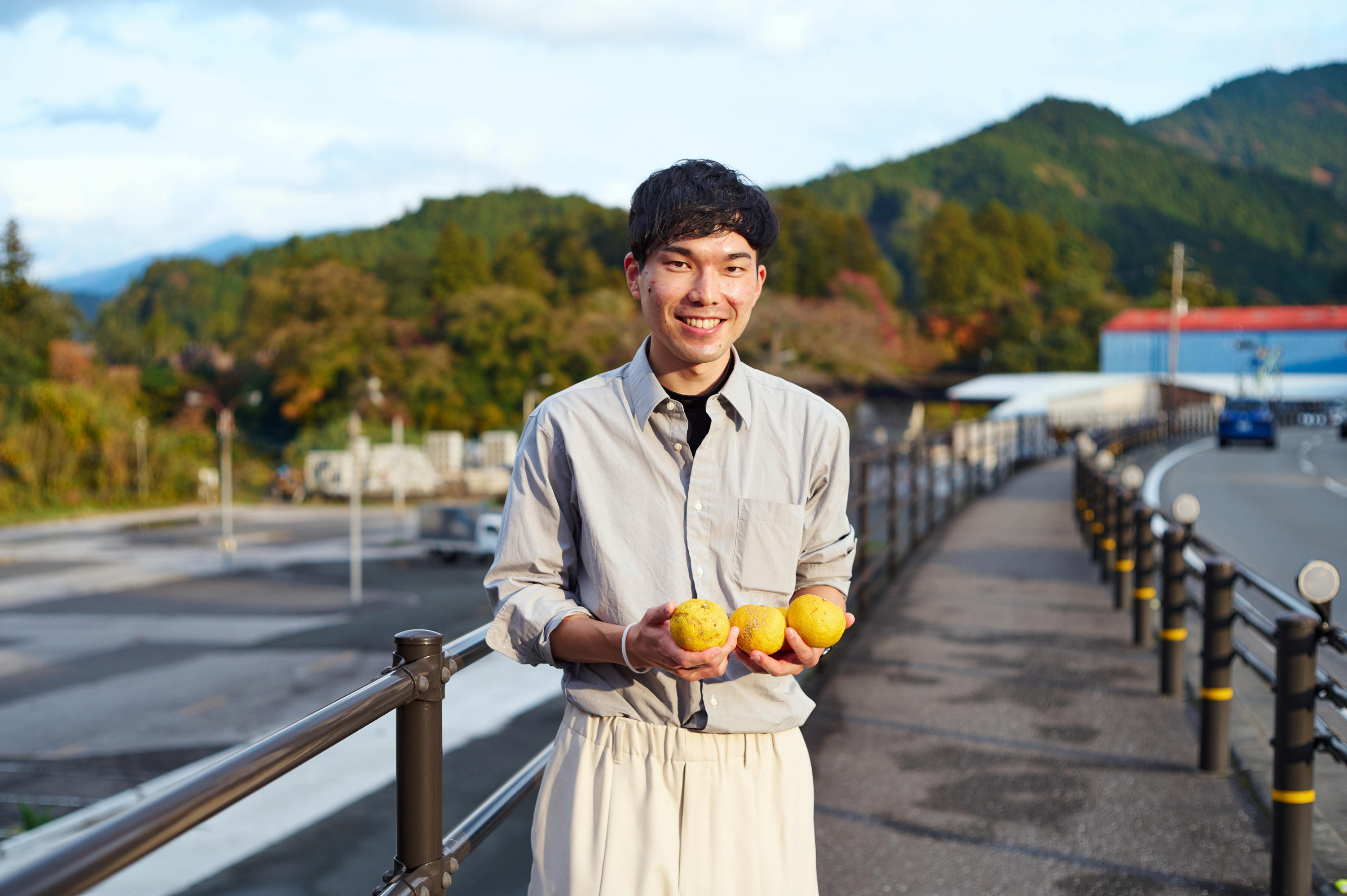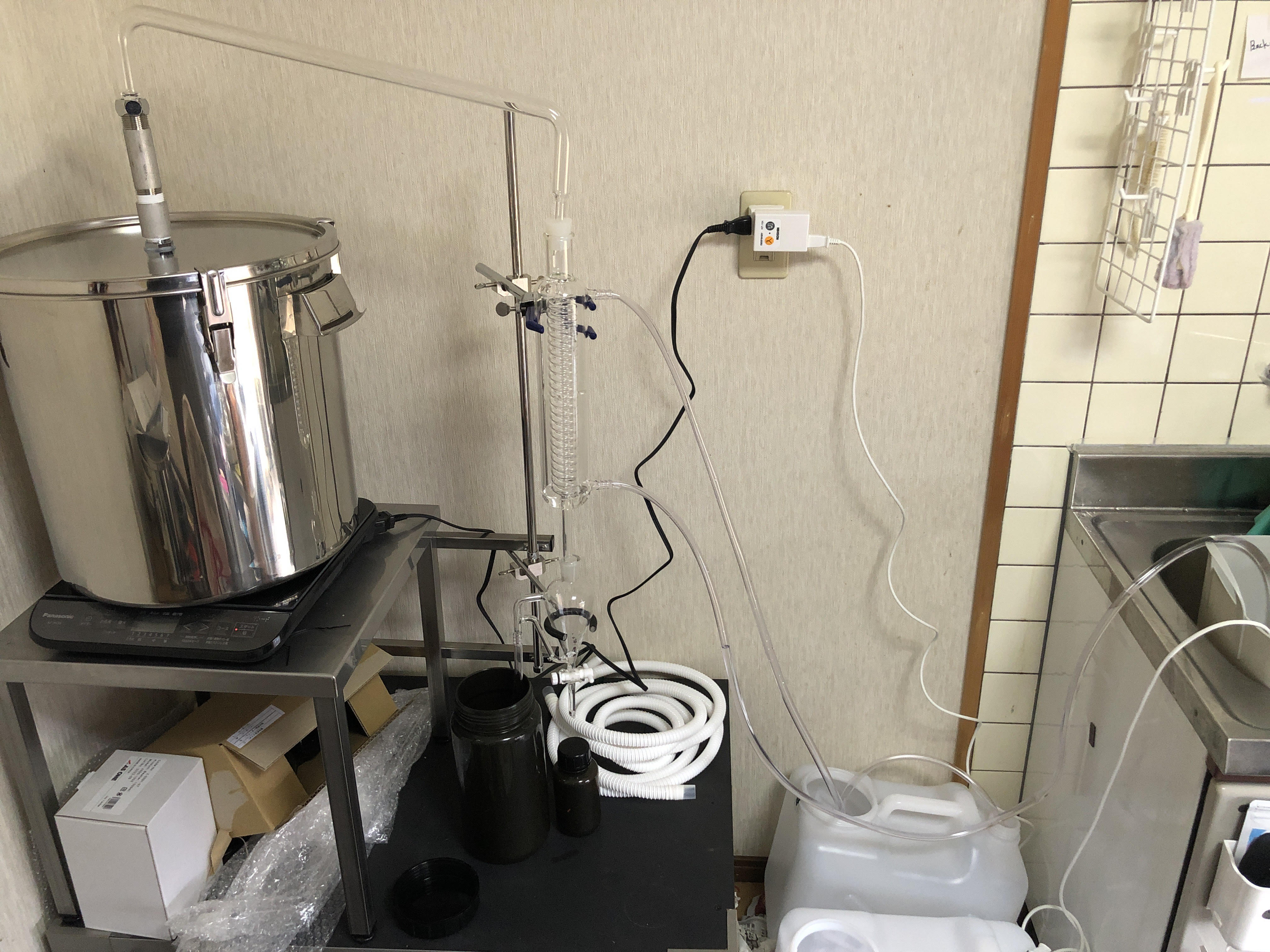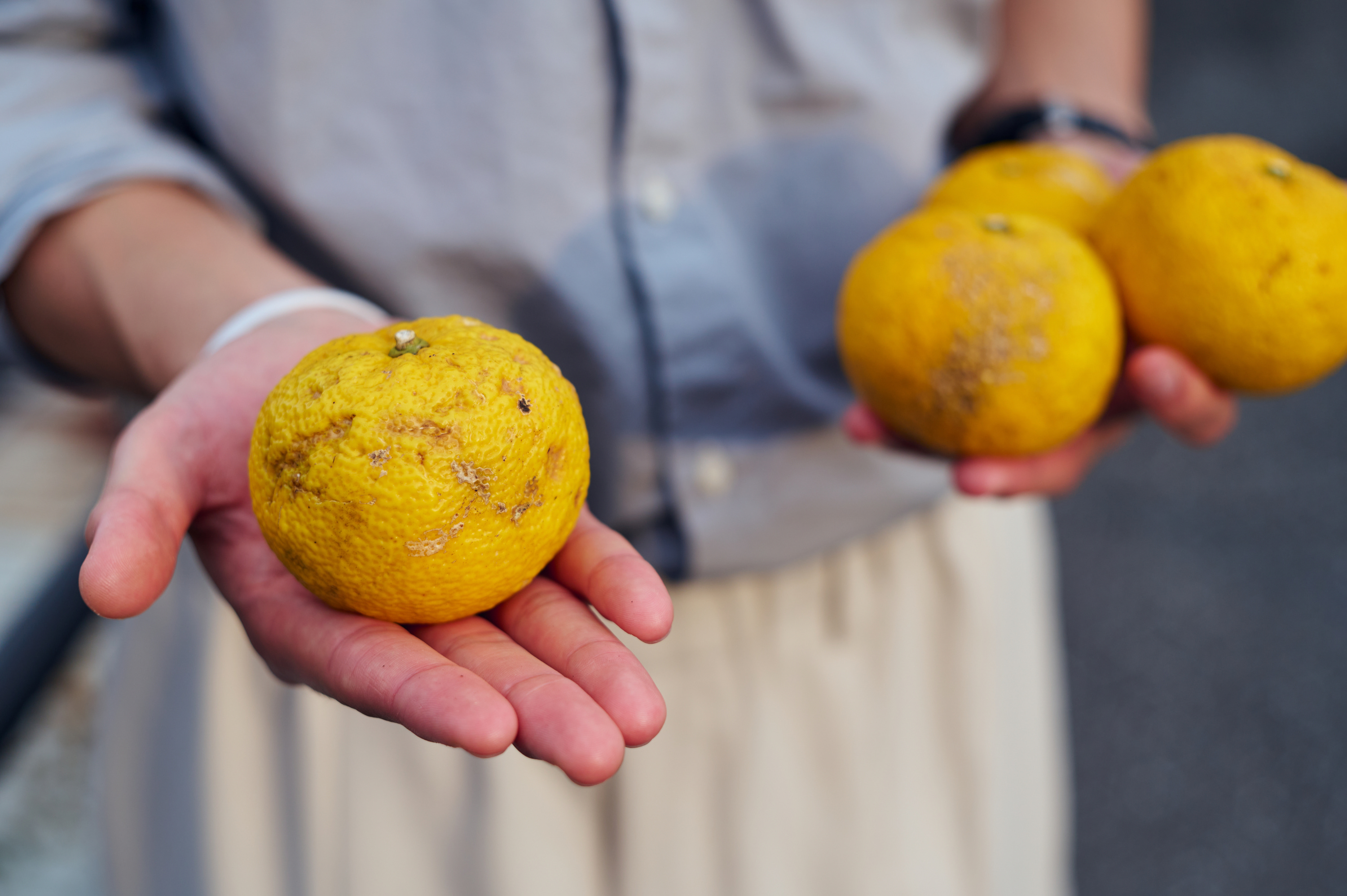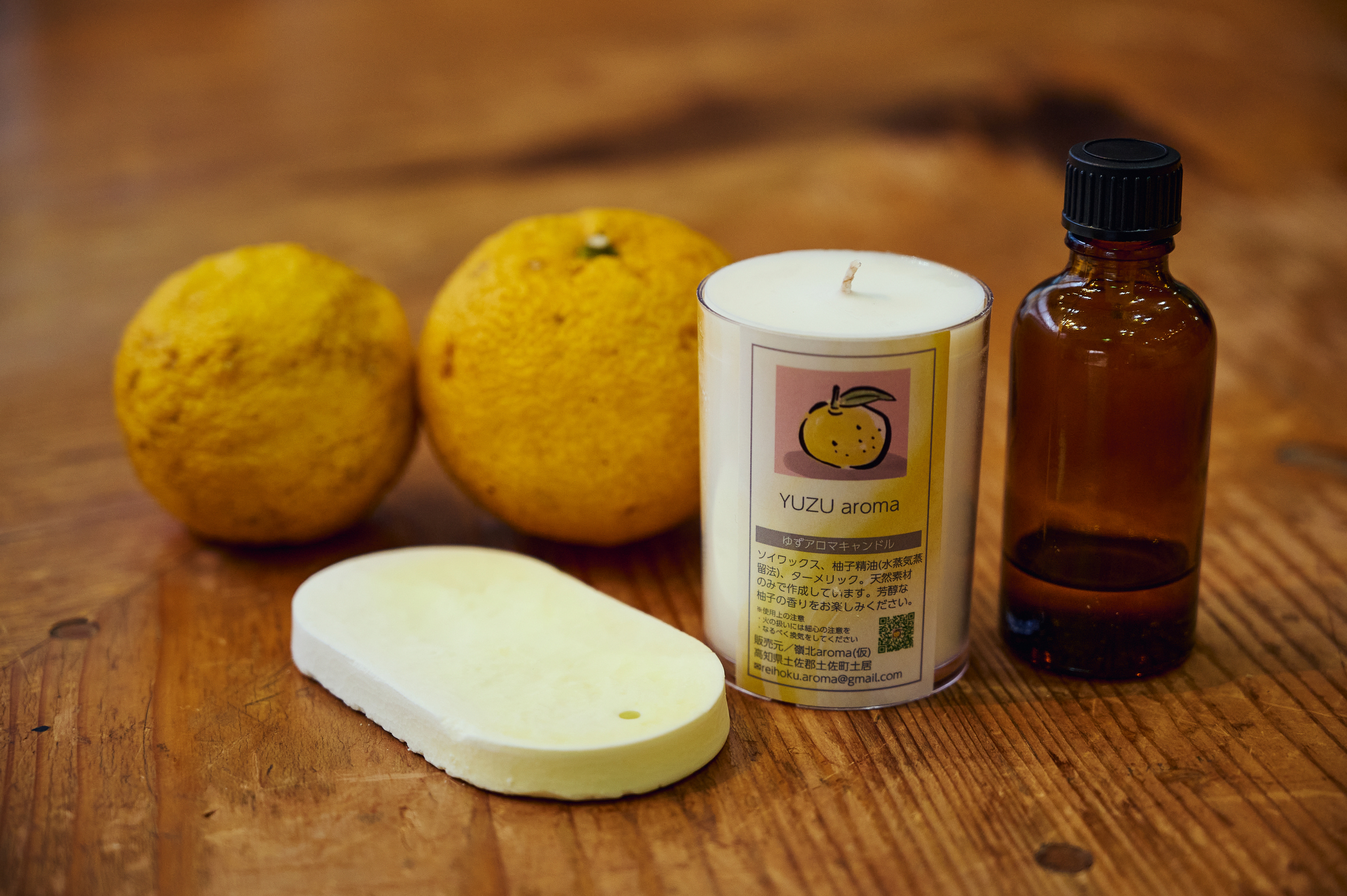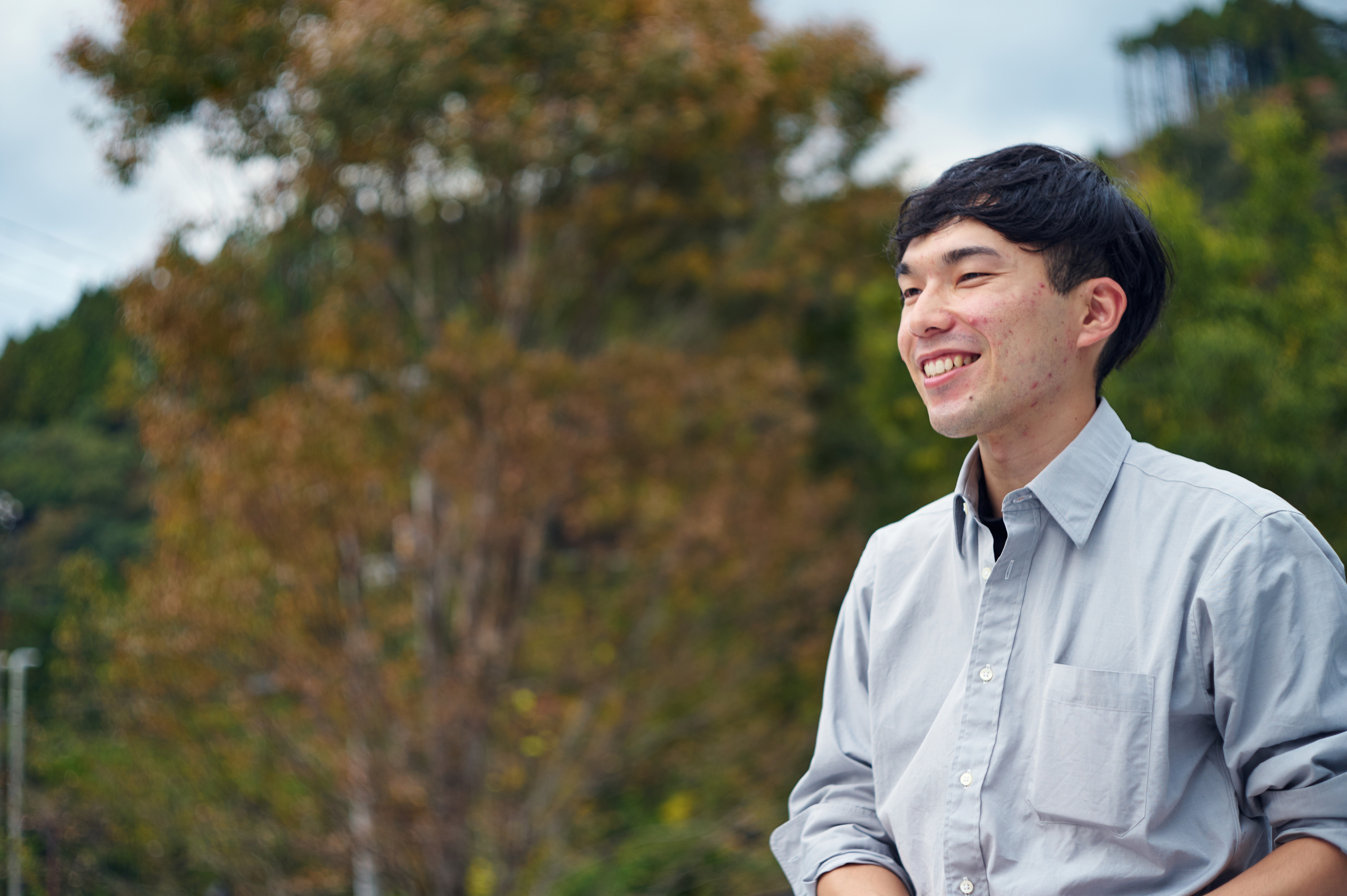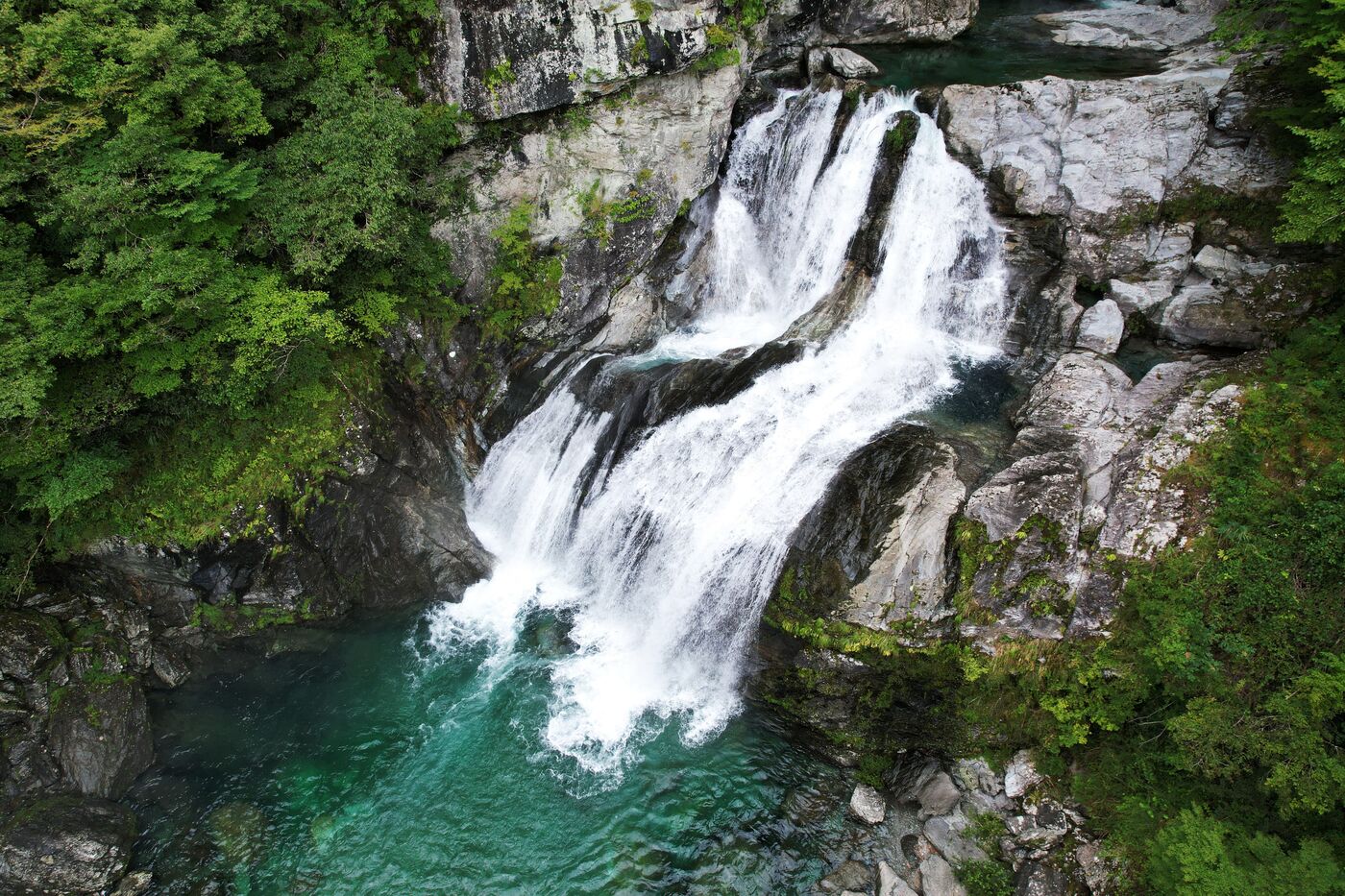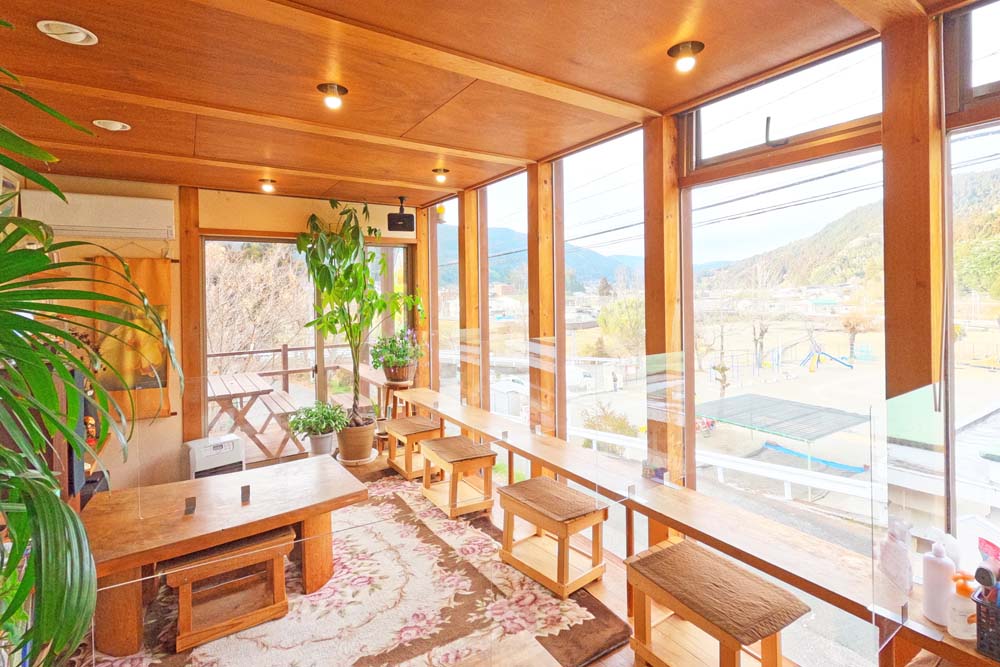Mr.Kazuhito Sugawara'Interview
Kazuhito Sugawara relocated to the Tosa Reihoku region in September 2021. While working as a teacher at a public tutoring school for high school students, he also works to extract essential oil from yuzu (a citrus fruit) peels, of which large quantities are usually thrown away. Yuzu is used in Japanese cuisine and is increasingly gaining worldwide fame. Will yuzu be the catalyst for people from all over the world to visit the Tosa Reihoku region?
――――Kochi Prefecture, where the Tosa Reihoku area is located, is Japan's largest producer of yuzu fruit. It looks like you are trying to create something exciting using the yuzu.
Sugawara: We have a particular problem with yuzu right now. Many people in this area grow their own yuzu trees, so they are able to harvest a lot of yuzu. However, the yuzu trees are located on top of the mountain. In order to get to the yuzu trees, you have to go up a gravel road that is barely wide enough for a light car to pass, and then you have to go to the end of the gravel road where there is a cedar forest. The other day, I helped an acquaintance's great-grandmother harvest the fruit from her yuzu tree. It seems that there is no one left to harvest the yuzu, so people are free to pick them on their own. I think there are many abandoned yuzu trees abandoned like this in this area. Because the owners are elderly, it is very difficult for them to pick yuzu trees in the mountains.
There is also a lot of yuzu peels that are thrown away. After harvesting, the peels are used to squeeze yuzu juice over grilled fish or in sake, and the rest of the peels are discarded. Of course, some of it is used as fertilizer, but that is only a small fraction of the total. I have always thought it was a waste to throw away the yuzu peels.
This led me to the idea of extracting essential oil from the peel. It is said that one drop of yuzu oil is enough to perfume a 50-meter swimming pool. Although there are several ways to extract it, I chose the steam distillation method. However, in order to steam distill, you have to buy the equipment, which can cost several hundred thousand yen. I didn't have that kind of money, so I raised funds through crowdfunding, and with the help of many acquaintances, I finally succeeded to raise the money.
To briefly talk about the steam distillation process, we put water in a large kiln, add chopped yuzu, and boil them down. The pot has a special glass tube attached to the lid, and the steam comes out through the glass tube. Aromatic substances are released along with the water vapor. We cool it down using cooling water to convert it from vapor to liquid, and extract only the aromatic components. Then, the aromatic purified water (floral water) and refined oil (essential oil) are extracted. The essential oil is about 0.3% of the weight of the peel. The amount in this small bottle is what I was able to obtain last night after more than 10 hours of work.
We are currently making scented candles and aromatic wax sachets using this essential oil that will be sent to those who participated in our crowdfunding campaign as a thank you gift. These are not marketed as products per se, but rather as a way to promote the use of yuzu peels in the community. While this is a small-scale initiative, we hope this will help to promote the reuse of yuzu peels, even if only a little.
――――That's a very sustainable approach, isn't it? Are you originally from the Tosa Reihoku area?
Sugawara: Actually, my hometown is in Kanagawa Prefecture, and I moved here in September 2021. The government has a system called the "Regional Development Assistance Program". It is a 3-year program. My specific duties include teaching at a public tutoring school run by the local Reinan High School. The school provides the tutoring free of charge, with the aim of improving the rate of students going on to higher education and to attract students from within as well as from outside the area. The school also focuses on English learning, with foreign teachers on staff, and the canoe club is coached by Lajos Jokosz, a former world champion who won the gold medal at the 2006 Canoe Sprint World Championships. Although Mr. Jokosz does not speak Japanese at all, he teaches with body language (laughs).
――――What was the best part of coming to the Tosa Reihoku area?
The air quality here is excellent, and when I get home around 9:00 p.m. after work I can look up at the night sky and marvel at how beautiful the stars look. My life took a 180-degree turn from when I was working in Shibuya, in Tokyo. I love it in late April, when the rice paddies are flooded with water, when the sky is clear, you can see the clouds reflecting on the paddy water. It's a beautiful sight and I really hope people get a chance to see it once.
Oh, and the water tastes great! Every day, I take a huge swig of water from the faucet at home because it tastes so good (laughs). I was told that the students in the canoe club drink the water straight from the river when they get thirsty. If you are looking for beautiful clean water, I also recommend Amegaeri Falls. Many people go to Shimanto River or Niyodo River to see clean water in Kochi Prefecture, but I think the water in this area is even more beautiful.
―――― Do you have any restaurant recommendations?
Suguwara: For breakfast, Music Café Canon is the place to go. It is a two-story wooden restaurant nestled in the mountains. The windows offer a great view of the wilderness. I especially recommend the Japanese breakfast and the special toasted bread plate served with fresh jam produced in the area. In the evening, the Riguru izakaya (Japanese-style pub) is a good choice. The owner buys his fish from a fishing port in Kochi City, so the fish is the freshest you can eat.
―――― Lastly, where do you see yourself in the future?
Suguwara: My purpose for coming here was to be able to work on the kind of "education" that I have always wanted to pursue. I really enjoy interacting with the students. Still, compared to schools in the city, there is not as much information available to students about higher education, so many students hesitate to pursue their studies, thinking that they will never be able to go to college. What I hope to convey is that there are so many more possibilities. Teaching students in this way has made me wonder if I am the kind of person who can teach others. It made me realize that I need to be better at what I do. That is why I started the yuzu peel project, and I am also thinking of starting my own business in the future. I want to be able to teach my students what it is like to start a business, instead of simply trying to make it successful.

